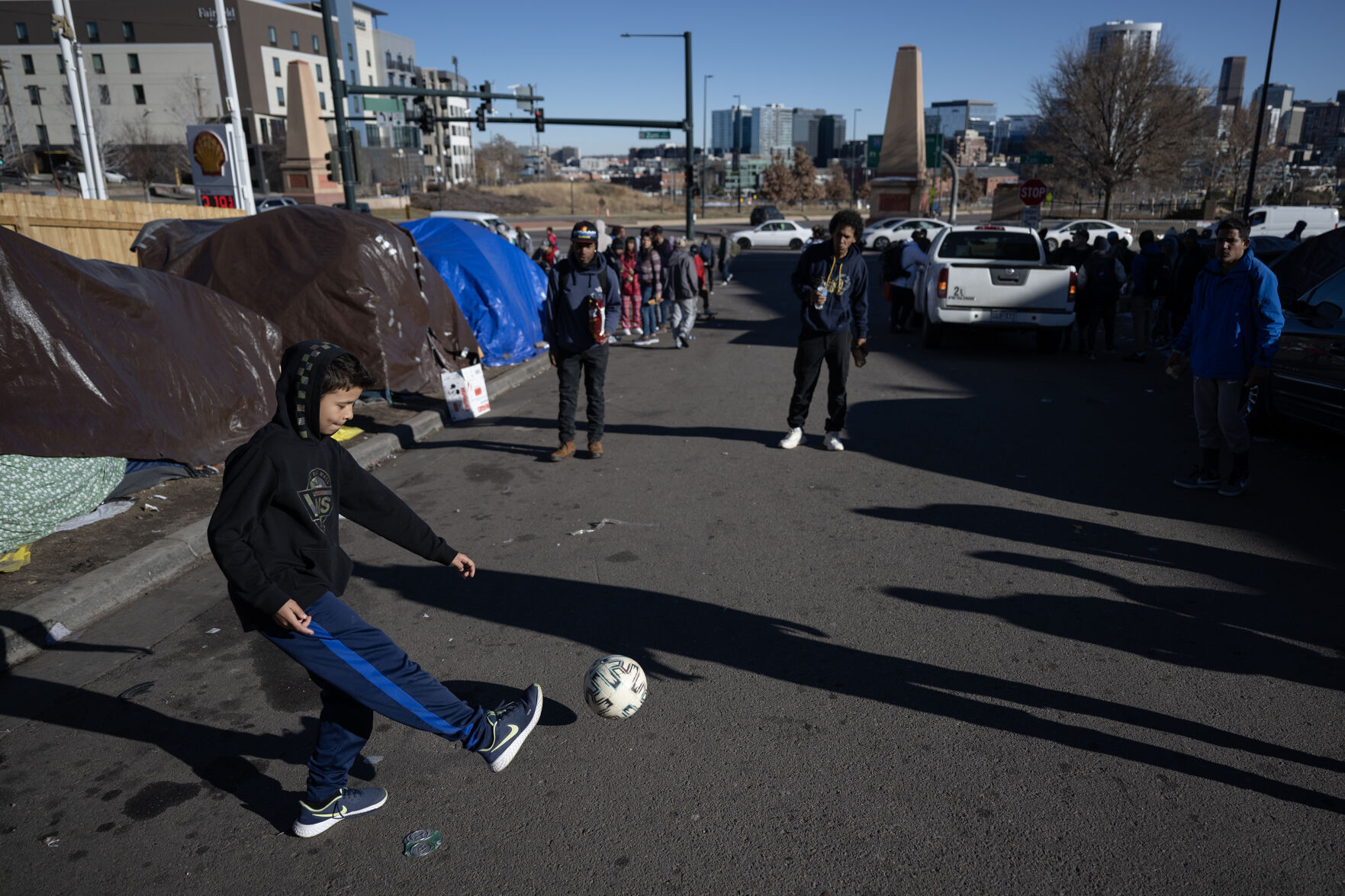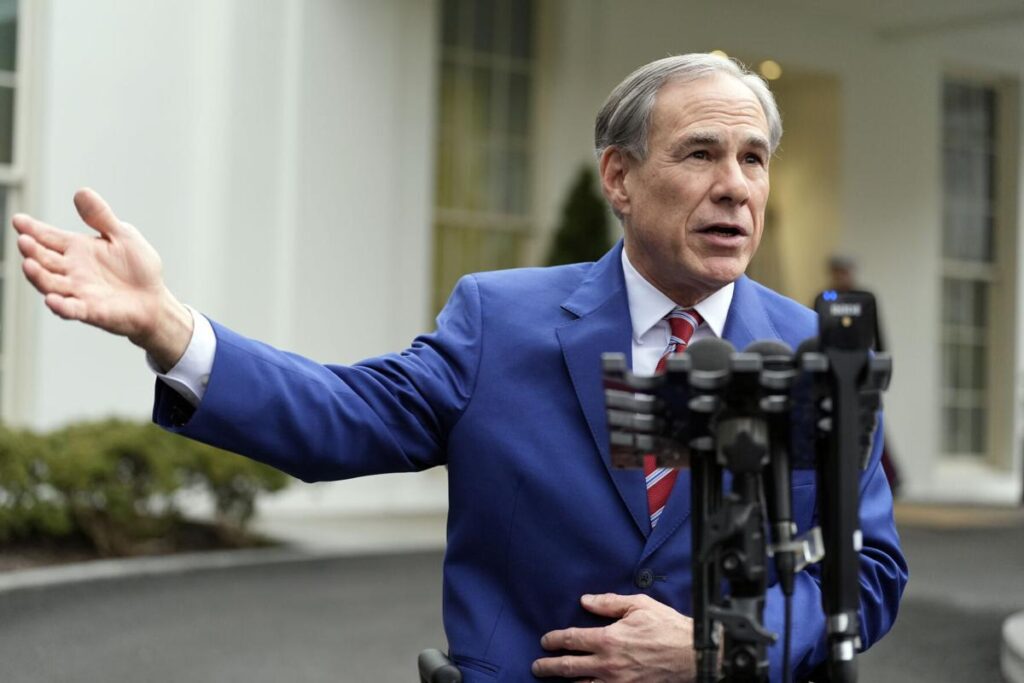New immigrants pose ‘difficult dilemma’ as Denver Health sees thousands of unpaid medical visits

Denver Health – the city’s hospital safety net – saw $10 million in additional “uncompensated care” in the last year, which the health system attributed to the tens of thousands of medical visits from immigrant patients from South and Central America.
The rise in costs coincides with – and health officials attribute to – the unprecedented number of immigrants, who have crossed America’s border illegally and arrived in Denver.
“Overall, these patients don’t have medical insurance,” said Dr. Taylor McCormick, associate director of Pediatrics Emergency Medicine at Denver Health. “Denver Health is eating the cost for many of these visits.”
Uncompensated care includes health services that are provided, but not reimbursed, often because patients lack medical insurance or the ability to afford the cost of care.
Denver Health does not track – nor does it ask – the immigration status of its patients.
This group of patients were identified as new to Denver Health, as those without medical insurance and from one of the following countries: Colombia, El Salvador, Ecuador, Guatemala, Honduras, Nicaragua and Venezuela.
Lion share are from Venezuela, a country in which more than 7 million people have fled the brutal regime.
It’s not just adults.
Denver Health is also experiencing record patient volumes among those younger than 18, with a 10% to 15% increase demand in pediatric care.
While the Denver Department of Public Health and Environment performs the bulks of the city’s health duties, Denver Health operates as the “safety net” hospital and consequently is partially funded by Denver taxpayers.
The estimated payment for clinician services to Denver Health this year is $73.1 million, which reflects a 6% increase, said Emily Williams, Denver Public Health and Environment spokesperson.
‘Work and access to basic needs’
Many of these new patients have underlining medical conditions or have run out of or no longer have prescriptions, McCormick said. A large number also suffer from diarrhea, rashes and skin conditions, as well as injuries associated with the nearly 3,000-mile arduous journey from Venezuela to the United States.
“It’s not surprising when they get to Denver that there’s severe and acute health care needs,” said Dr. Steven Federico, chief government and community affairs officer for Denver Health.
Health care providers at Denver Health have also seen chickenpox cases among immigrants, many of whom have lived in congregate settings that can foster the spread of disease.
Chickenpox is a highly contagious disease that causes itchy, blister-like rashes and requires about 82% of the population to be inoculated.
“We’re certainly worried about seeing rises in vaccine preventable diseases,” McCormick said.
As of noon Tuesday, Denver had welcomed 37,571 immigrants.
Early in the humanitarian crisis, city officials decided to take on the cost of temporarily providing food and shelter as well as transportation for those seeking to put down roots elsewhere.
Officials have estimated that 70% of these new arrivals do not intend to stay in The Mile High City. Denver has purchased bus, plane and train tickets for fewer than half, an indication that more than three in 10 of the city’s newly arriving immigrants may be making Colorado’s most populous city home.
The city has been reimbursed roughly $14.1 million of the $38 million in associated expenses, meaning Denver taxpayers are picking up most of the tab.
Denver Mayor Mike Johnston has already asked department heads to find 10%-to-15% in savings to brace what is expected to be a $180 million cost this year, if the crush of new arrivals does not abate.
In the discussions about the need for work permits and additional funding to support these newly arriving immigrants, scant attention has been paid to their health care needs, some have said.
“What we’re not doing on the government side of this is providing them an opportunity to work and access to basic needs such as health care,” Federico said. “It’s put the health care system, like Denver Health, in a real bind. A moral and financial bind.”
‘Difficult dilemma’
In 2022, Denver Health saw $125 million in “uncompensated care.” Last year, it ballooned to $135 million. In 2020, the price of uncompensated care stood at $60 million.
Federal regulations require hospitals to provide emergency care.
Federico estimated that the bulk of the $10 million difference in uncompensated care between 2022 and 2023 was related to the influx of new immigrants using the health system.
After losing $30 million in 2022, the health system anticipates breaking even in 2023, Federico said.
“It’s a difficult dilemma of how we best meet their health care needs when health care has not been part of the equation,” Federico said.
The surge in new immigrant patients from South and Central America equates to roughly 8,000 people and 20,000 visits, Federico said.
Numbers like that – for an already strained health system emerging from the COVID-19 pandemic – is not sustainable, he said.
“There’s going to be a point where the numbers make this very, very hard,” McCormick said. “We’re already past the breaking point, to a certain extent.”
It is unclear how far the strain might be felt in Colorado.
While newly arriving immigrants appeared to favor Denver, pockets emerged elsewhere. The mountain town of Carbondale was recently overwhelmed when more than 150 mostly Venezuelan immigrants arrived in search of work.
Located roughly 170 miles west of Denver, the Aspen bedroom community has a population of about 6,400.
The issue does not yet appear to be on the radar of the Colorado Hospital Association.
“I haven’t heard that directly from other systems, but I wouldn’t be at all surprised if they are also seeing an increase in ER visits and other care related to the increase in migrants arriving in Denver,” Cara Welch, an association spokesperson, said in an email to The Denver Gazette.
‘We are helping more people get health care’
For decades, the United States has struggled to address what many – on both sides of the political aisle – describe as a broken immigration system.
Most, if not all, of Denver’s newly arriving immigrants do not have authorization to work legally in the U.S.
That has huge implications for Denver, as it grapples with waves of immigrants who cannot legally work in a country where most people receive medical insurance through their employer.
The city is sheltering – at taxpayer expense – about 4,500 immigrants, who, without the ability to work, won’t be able to sustain themselves, let alone pay for health care.
“The more patients that we see, that threatens the idea that anybody can come and get excellent care here,” McCormick said.
In 2021, Colorado had $78.8 million in emergency health care expenses for immigrants living in the U.S. without authorization, according to Health First Colorado, which administers the state’s Medicaid program.
An unknown portion of a hospital’s uncompensated would be included in this figure.
Colorado also has a program – called OmniSalud begun in 2023 – that aims to address, with state funds, the access to care issue that immigrants who are illegally staying in the country face.
In its second year, OmniSalud has accepted 11,000 enrollees at a cost of approximately $73 million, said Vincent Plymell, assistant commissioner for Communications and Outreach for the Colorado Department of Regulatory Agencies. That translates to roughly $6,600 per person.
“It means that we are helping more people get health care for unexpected emergencies, helping more parents get their children regular check-ups and vaccinations, and letting more people access necessary preventive care, while managing chronic conditions,” Colorado Insurance Commissioner Michael Conway said in a statement.
What makes this wave of immigration particularly challenging is the pace with which they are coming.
“What’s difficult is the volume of people coming in rapid succession to a place where they don’t have existing infrastructure,” Federico said.

















